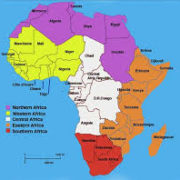East Africa: Ethiopia, Eritrea Ties Not a Threat to Lapsset – Official
The Eritrea and Ethiopia peace agreement signed in July will not have any negative impact on the implementation and operationalisation of the Lamu Port South Sudan Ethiopia Transport (Lapsset) corridor project.
This is according to Lapsset Corridor Development Authority (LCDA) Chief Executive Officer Silvester Kasuku who downplayed emerging fears that the peace deal which has now created a close working relationship between the two former rival countries will enable Ethiopia, a landlocked country, to have access to the port in Asmara, which is in addition to Djibouti.
DECADES OF CONFLICT
Critics have also argued that Ethiopia’s plans to work closely with Somalia in a move to establish a similar corridor shall put in doubt the Lapsset components that originally hoped to service the landlocked country.
In an exclusive interview with Nation yesterday, Mr Kasuku insisted that the peace deal between the two countries will have no impact on the Sh 2.5trillion project since it will handle the entire southern Ethiopia which has about 50 million people.
Mr Kasuku also reiterated that other ports like Djibouti and Eritrea handle North of Addis Ababa and therefore the relevancy of the Lapsset components even after the peace agreement is still intact.
Following decades of conflict between Eritrea and Ethiopia, the latter was forced to heavily rely on Djibouti and before the peace deal was signed, it hoped that Lamu would give it access to another port, especially to serve its southern regions.
The agreement now lays out a new era of cooperation between the former enemies, including re-establishing telecommunication and transport links, reopening embassies and resolving a border dispute that has locked them in conflict since the late 1990s.




